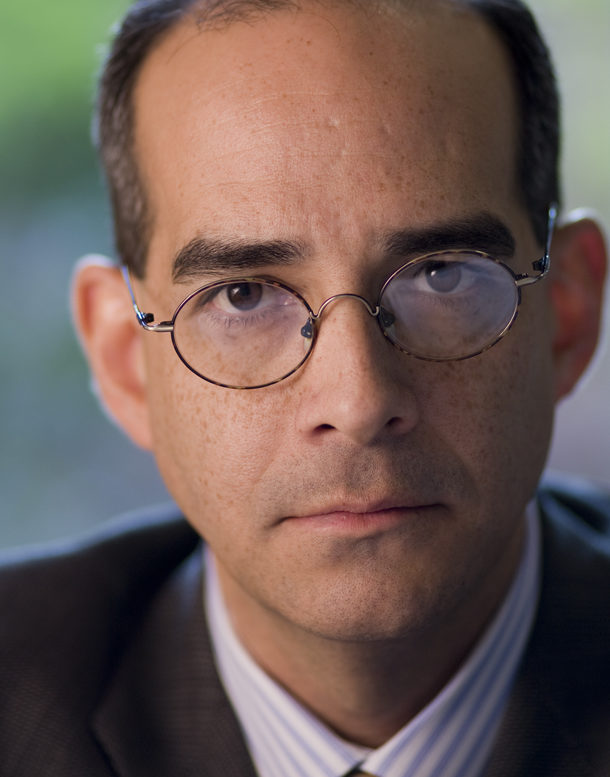Locked Out, Demoted
Biologist Richard Sternberg holds two PhDs (Molecular Evolution and Systems Science/Theoretical Biology). In 2004, he worked as a staff scientist at the National Center for Biotechnology Information and as a Research Associate at Smithsonian’s National Museum of Natural History. He also served as editor of The Proceedings of the Biological Society of Washington (PBSW).
Sternberg received an article for PBSW from Dr. Stephen Meyer on intelligent design. He sent it through the normal peer review process. This was confirmed later by the president of the BSW both in an email to Sternberg and in an email to an official at the Museum.1 Meyer’s article, “Intelligent Design: The Origin of Biological Information and the Higher Taxonomic Categories,” was published in the Proceedings of the Biological Society of Washington on August 4, 2004.2
At the time, Sternberg did not consider himself an intelligent design proponent. He told NPR, “Why publish it? Because evolutionary biologists are thinking about this. So I thought that by putting this on the table, there could be some reasoned discourse. That’s what I thought, and I was dead wrong.”
Amid uproar from the Smithsonian, the Council of the Biological Society of Washington decided to retract the article.
But that wasn’t all. Sternberg lost access to specimens, and his master key to the Museum. Rumors went around that he wasn’t even a scientist, despite his holding two PhDs in biology. His Research Associateship was not renewed; he was demoted to research collaborator. He was transferred to a hostile supervisor. His office was taken away. Sternberg also notes that the National Center for Biotechnology Information (part of the National Institutes of Health) was pressured to fire him.
Sternberg filed a complaint with the US Office of Special Counsel. Unfortunately, they were unable to complete the investigation due to jurisdictional issues. But they did tell him in a letter, “It is also clear that a hostile work environment was created with the ultimate goal of forcing you out of the SI.”3
Facing an unbearable environment, Sternberg resigned.
Staff of the House of Representatives Committee on Government Reform also conducted an investigation and released a report in December 2006:
The staff investigation has uncovered compelling evidence that Dr. Sternberg’s civil and constitutional rights were violated by Smithsonian officials. Moreover, the agency’s top officials — Secretary Lawrence Small and Deputy Secretary Sheila Burke — have shown themselves completely unwilling to rectify the wrongs that were done or even to genuinely investigate the wrongdoing. Most recently, Burke and Small have allowed NMNH officials to demote Dr. Sternberg to the position of Research Collaborator, despite past assurances from Burke that Dr. Sternberg was a “Research Associate in good standing” and would be given “full and fair consideration” for his request to renew his Research Associateship. The failure of Small and Burke to take any action against such discrimination raises serious questions about the Smithsonian’s willingness to protect the free speech and civil rights of scientists who may hold dissenting views on topics such as biological evolution.
In 2007, Sternberg joined the Center for Science and Culture. Today, he continues his research as a scientist with Biologic Institute. For more information, please visit his website, richardsternberg.org
1 Sternberg notes on his webste that “Subsequently, after the controversy arose, Dr. Roy McDiarmid, President of the Council of the BSW, reviewed the peer-review file and concluded that all was in order. As Dr. McDiarmid informed me in an email message on August 25th, 2004, ‘Finally, I got the [peer] reviews and agree that they are in support of your decision [to publish the article].’” [brackets in original]
Additionally, an email in January 2005 included in the appendix to the Souder report, from McDiarmid to an official at the Museum reiterates that the official peer review process was completed correctly: “I have seen the review file and comments from 3 reviewers on the Meyer paper. All three with some differences among the comments recommended or suggested publication. I was surprised but concluded that there was not inappropriate behavior vs [sic] a vis the review process.”
2 Stephen Meyer, “Intelligent Design: The Origin of Biological Information and the Higher Taxonomic Categories,” Proceedings of the Biological Society of Washington 117, no. 2 (August 4, 2004): 213-239.
3 As the US Office of Special Counsel noted in a letter to Sternberg,
“I have carefully considered the information you provided. Based upon my evaluation of the facts and law applicable to your claim, I have made a preliminary determination to close our investigation into your allegations. My decision is not based upon the substance of your allegations; in fact, our preliminary investigation supports your complaint. My decision is founded upon a complicated jurisdictional puzzle and your position as a Research Associate (RA).”
The OSC also noted, “It is also clear that a hostile work environment was created with the ultimate goal of forcing you out of the SI.”
